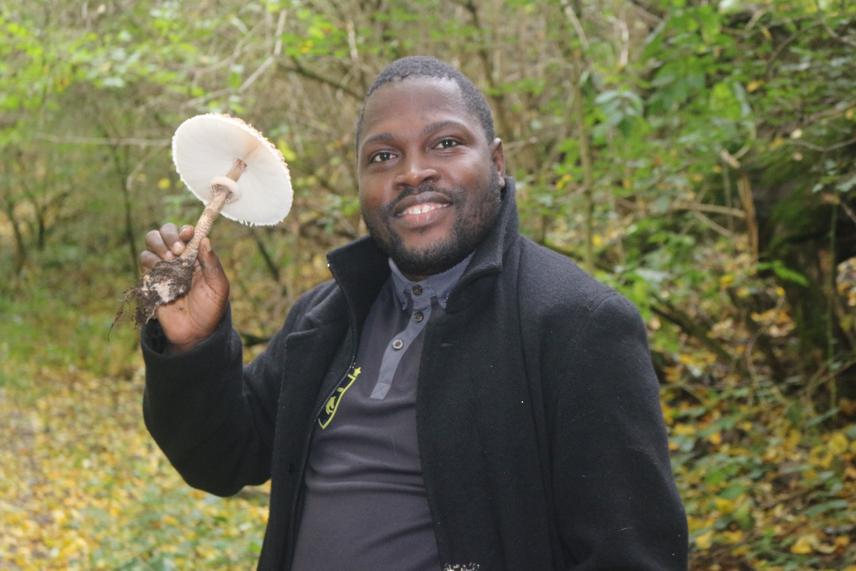Boris Armel Olou
Other projects
12 Oct 2021
Documenting the Diversity of Macrofungi and Local Knowledge for Sustainable Conservation of Fragmented Swamp Forest of Lokoli in Southern Benin
Despite increasing conservation efforts, biodiversity has been continuously declining globally and poverty rates still remain ‘unacceptably’ high. As human populations in biodiversity hotspots continue to grow, the biodiversity crisis is expected to worsen, and consequently the number of critically endangered species is expected to rise. Thus, for a sustainable conservation, new era of socially oriented biodiversity conservation and resource management should be a solution. Conservation of biodiversity hotspots must anticipate rapid and long-lasting livelihood alternatives by creating favourable environments that do not undermine local people. In that context, empowerment has been identified as an important indicator of successful conservation and social transformation. It requires knowledge of people's needs around the resource to be conserved.

In southern Benin, the swamp forest of Lokoli (SFL) is a unique type of habitat in West Africa. Currently, this forest is fragmented by the extraction of both timber and non-timber forest products. From our previous Rufford project, we documented the fungal biodiversity, the local knowledge on the mushroom species sought after by local population, and the reasons behind local community pressure on SFL. To the question related to the local people pressure on SFL, the local population conveyed that their pressure on SFL is justified by the daily search of livelihood and needs. Thus, we think that empowering local people through the edible mushroom value chain would be a good opportunity to engage local people in the conservation of this forest and its rich biodiversity while meeting their daily needs. Thus, this project aims in the first step to identify accurately the eight edible mushroom species sought after by local population and recorded in our previous project using morphological and molecular approaches.
In a second step, the different opportunities related to edible mushrooms will be communicated to the local population and they will be trained on several aspects of edible mushrooms. In the third step, 45 volunteers will be installed and accompanied with the necessary equipment to start the mushroom production and marketing activities. In the fourth stage, the population will be made aware of the importance of conserving the Lokoli swamp forest through community outreach campaigns. Last but not least, several degraded habitats of SFL will be reforested with African oak trees.